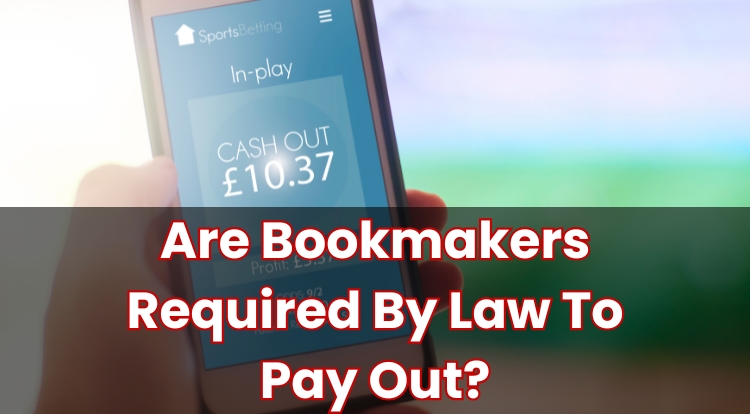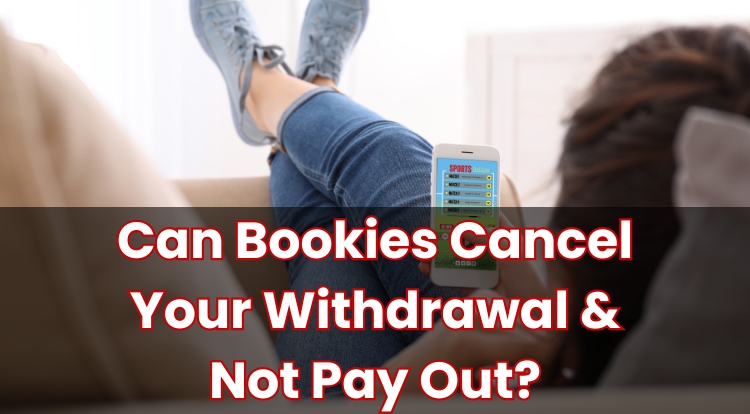How Rollover Works in Betting Explained
Understanding the small print in sports-betting promotions can be confusing. One term that often catches people off guard is “rollover”. It’s not always clear what it means, how it works, or why it’s there in the first place.
This guide breaks it down in simple terms. If you’ve ever seen a bonus offer from a bookmaker and wondered what’s required before you can withdraw any potential winnings, you’re not alone.
This blog will walk you through how rollover rules usually work, explain the different types of terms you might come across, and give clear examples to help make sense of it all.
What Triggers a Rollover Requirement?
When you sign up with a UK bookmaker or sportsbook, you may see offers that include bonus funds or free bets. These offers often come with conditions. One of the most common is the rollover requirement. This is a rule that says you need to place a certain amount in bets before any potential winnings linked to the offer can be withdrawn.
For example, let’s say you deposit £10 and receive a £10 bonus. If the bookmaker sets a 3x rollover requirement, you’d need to place £30 in qualifying bets before you could withdraw any funds gained from that bonus.
Bookmakers use rollover terms to ensure that bonus funds are actually used for betting activity. It helps prevent people from accepting a bonus and withdrawing it straight away, without using it for its intended purpose.
Each bookmaker sets its own terms for what counts towards the rollover. Some may only allow certain sports, specific bet types, or require minimum odds. You might also see limitations on how quickly you need to meet the rollover.
These rules can usually be found in the promotion’s terms and conditions, and licensed UK operators are required to make these terms easy to find and understand before you sign up.
Simple Betting Rollover Example
To see how a rollover works in practice, let’s use another clear example.
You open an account with a UK bookmaker and deposit £10. The bookmaker gives you a £10 bonus. That £10 bonus comes with a 5x rollover. This means you’ll need to stake a total of £50 before any potential winnings linked to the bonus can be withdrawn.
You could place five £10 bets on football matches. As long as each of those bets meets the bookmaker’s qualifying conditions—such as minimum odds of 1.5 —those bets could count towards the rollover.
It doesn’t matter whether the bets win or lose in terms of meeting the rollover. What matters is that you stake the required amount under the right conditions. Once that’s done, any remaining winnings from the bonus become eligible for withdrawal, provided you’ve also met any other conditions, such as time limits.
It’s important to know that sports-betting involves risk. You could lose your stake, and any winnings are never certain.
Why Rollover Rules Matter for Players
Rollover rules affect how you can use a bonus and whether you’re able to take out any money earned from it. If you don’t meet the conditions, any possible winnings from the bonus may be voided, or the bonus itself may expire before you can use it.
These requirements can vary between bookmakers. Some may only accept bets placed on particular sports, while others may restrict how low the odds can be for a bet to count. If an offer is based on a free bet rather than a cash bonus, the terms can differ again.
It can be worth taking time to decide if a promotion fits the way you like to bet. If you only bet occasionally, or prefer smaller stakes, a high rollover requirement might not be practical. On the other hand, if you like to place bets within the qualifying conditions, you may find it easier to meet the requirements.
The important part is understanding exactly what is being asked before accepting the offer, which is why reading the full terms can be valuable.
Spotting Hidden Terms in Rollover Offers
Some offers might look attractive at first glance, but can come with conditions that affect how realistic it is to complete the rollover.
A common one is the minimum odds rule. For instance, a bookmaker might state that only bets placed at odds of 2.0 (even money) or higher count towards the rollover. If you place a bet below those odds, it may not contribute anything towards the requirement, even if it wins.
Other conditions might restrict which sports or markets you can bet on. Some may only count bets placed on certain leagues or match types. You might also come across accumulator restrictions, such as needing to include at least three selections in a single bet to make it valid for a rollover.
There are often time limits as well. A promotion might require that the full rollover be completed within seven days. If not, any remaining bonus funds and potential winnings may be removed from your account.
Some offers might also exclude bets that use cash-out features. This means that if you cash out a bet early, it may not count towards your rollover progress, even if part of the bet had already played out.
Reading the terms carefully before opting in can help you decide whether you’re comfortable with the offer and can help avoid any misunderstandings later.
Is Rollover the Same as Turnover?
The terms rollover and turnover are sometimes used in similar ways, but they don’t mean exactly the same thing.
Turnover is the total amount you’ve staked on bets, regardless of whether they win or lose. For example, if you place five bets of £5 each, your turnover is £25. It’s simply the volume of your betting activity.
Rollover is more specific. It refers to the requirement set by a bookmaker that you must stake a certain amount—usually a multiple of your bonus or deposit—before you can withdraw any related winnings. It’s usually tied to bonus offers and has a direct impact on how they can be used.
Because these terms can be defined differently by each bookmaker, you may want to check how they are being used in the context of a particular offer. Some operators may provide a glossary of terms, and you can also reach out to customer support if anything is unclear.
Is There Such Thing as a No Rollover Bonus?
Some UK bookmakers might promote offers as “no rollover” bonuses. These typically don’t require you to place several bets before withdrawing any potential winnings, but there are still conditions you’ll need to follow.
In most cases, these are free bet promotions. You might be given a £10 free bet after placing a qualifying bet. If you use that free bet and win £20 at odds of 2/1 (3.0), you’ll usually receive just the £20 in winnings—the £10 free bet stake itself isn’t returned.
These offers often come with their own requirements, such as using the free bet within a specific time, placing it on a minimum set of odds, or using it on certain sports. While they may not involve rollover in the traditional sense, they are not entirely without rules.
There’s also no guarantee that any winnings will be achieved, as all bets involve an element of chance. Offers that suit one person may not suit another, so comparing different promotions and understanding their conditions can help you make a more informed decision.
If you’re ever unsure about a betting offer, or feel unsure about how bonus conditions work, it may be worth speaking with the bookmakers customer support team.
If gambling ever stops being enjoyable, or you feel pressured to chase bonuses or losses, there are tools available to help. You can set deposit limits, time reminders, or use reality checks. Independent support is also available through services like GamCare or GamStop.
*All values (Bet Levels, Maximum Wins etc.) mentioned in relation to these games are subject to change at any time. Game features mentioned may not be available in some jurisdictions.
**The information provided in this blog is intended for educational purposes and should not be construed as betting advice or a guarantee of success. Always gamble responsibly.





